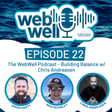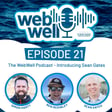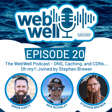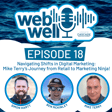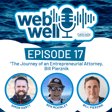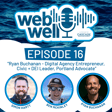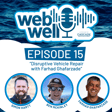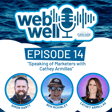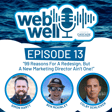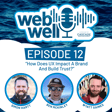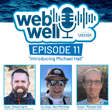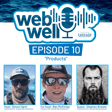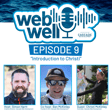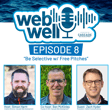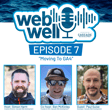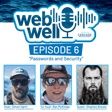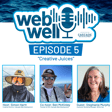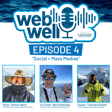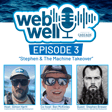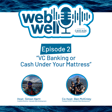
The WebWell Podcast - The Journey of a Digital Marketing Entrepreneur, Kent Lewis
Welcome to the latest episode of the WebWell Podcast, your newest binge-worthy podcast, where we unravel the threads of digital marketing with the insight of industry leaders. Today, we're excited to host Kent Lewis, a digital marketing maestro and entrepreneurial spirit whose journey has shaped the digital landscapes of Portland and beyond. In this episode, titled "The Journey of a Digital Marketing Entrepreneur," hosts Simon and Ben chat with Kent about the thrills and challenges of starting and steering a digital marketing agency. From his early days to founding Anvil Media and his current role at Anvil Unlimited, Kent shares stories that are as educational as they are entertaining.
Tune in as we explore how Kent's leadership has not only driven business growth but also fostered significant community through initiatives like pdxMindShare and his involvement in entrepreneur organizations. We'll also get a peek into the world of a Fractional CMO and how such roles are revolutionizing strategies in the digital age. Whether you're a budding entrepreneur, a marketing professional, or just curious about the digital domain, this episode is packed with insights that promise to enlighten and inspire. Don't miss out on this compelling dialogue that bridges professional insights with personal journeys in the evolving world of digital marketing.
To learn more about Kent, visit:
https://www.linkedin.com/pulse/whats-your-story-write-book-kent-lewis/
https://kentjlewis.com/
https://www.anvilmediainc.com/
We'd love to know what you think!! Please send your questions or comments to webwell@cascadewebdev.com We look forward to hearing from you!
